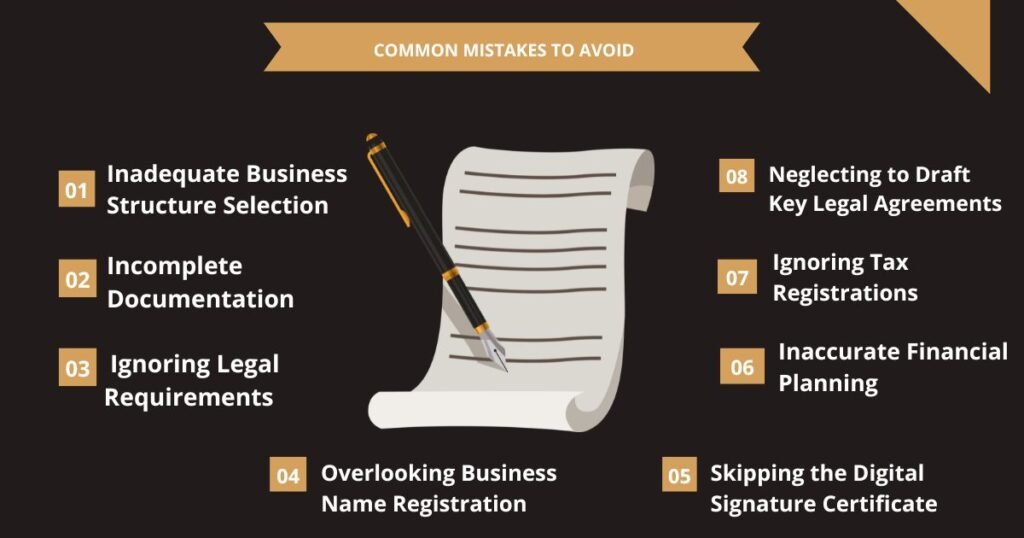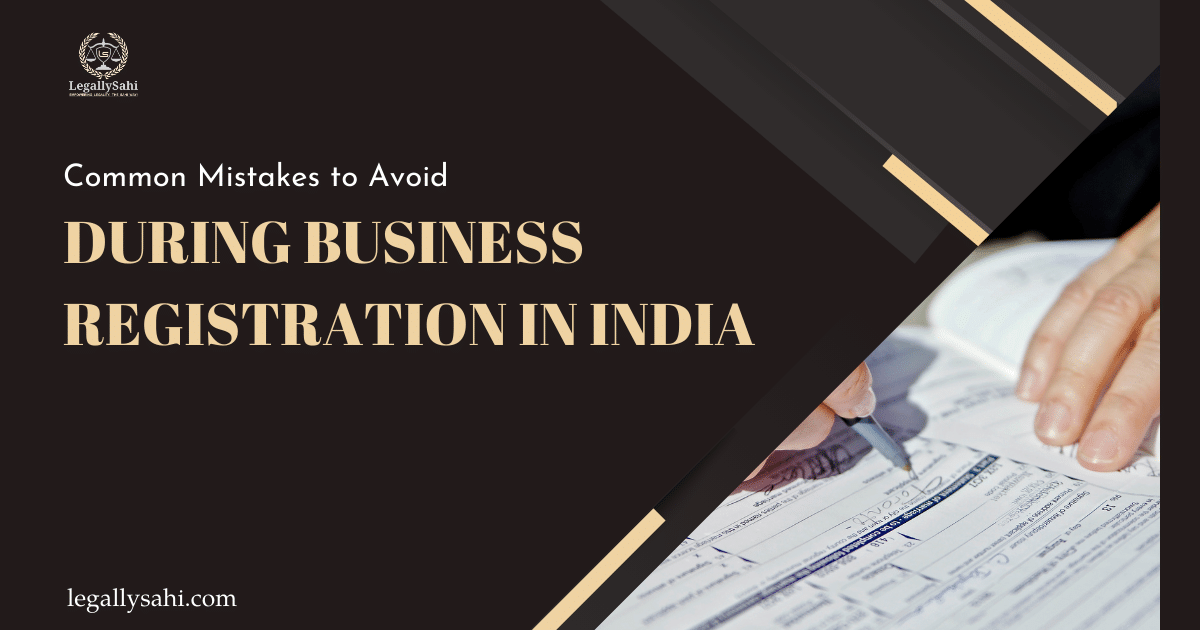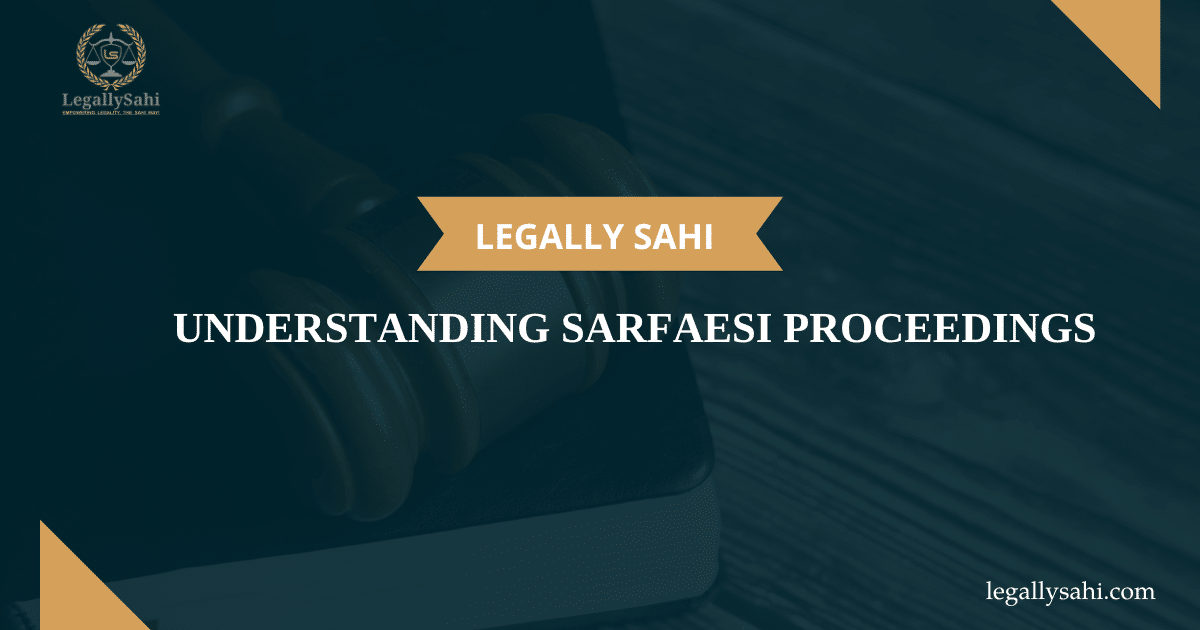Starting a business in India is an exciting venture, but it comes with its own set of legal requirements and bureaucratic hurdles. The process of business registration is critical to the formal establishment of your enterprise, ensuring compliance with regulatory norms and avoiding future legal issues. However, many entrepreneurs often make mistakes during this process, which can lead to delays, penalties, or even rejection of their application. In this blog, we will explore the common mistakes to avoid during business registration in India, providing you with insights to ensure a smooth and successful registration process.
Understanding the Importance of Proper Business Registration
Before diving into the common mistakes, it’s essential to understand why proper business registration is crucial. Registering your business:
- Legal Recognition: Gives your business a legal identity and protection.
- Compliance: Ensures you comply with the legal and regulatory framework.
- Financial Benefits: Makes you eligible for various government schemes and benefits.
- Credibility: Enhances your business’s credibility with customers, partners, and investors.
- Operational Efficiency: Helps in opening bank accounts, obtaining loans, and other financial transactions.

Common Mistakes to Avoid
1. Inadequate Business Structure Selection
Choosing the Wrong Structure: Selecting the appropriate business structure is fundamental. Options include sole proprietorship, partnership, Limited Liability Partnership (LLP), Private Limited Company, and more. Each has distinct legal, tax, and operational implications.
- Sole Proprietorship: Simple and easy to start but offers no personal liability protection.
- Partnership: Suitable for businesses with multiple owners but comes with shared liability.
- LLP: Provides liability protection with the benefits of a partnership.
- Private Limited Company: Offers limited liability protection, allows for the issuance of shares, and is suitable for businesses planning to scale.
Advice: Assess your business goals, scale, and nature before finalizing the structure. Consult with legal and financial advisors to understand the implications of each option.
2. Incomplete Documentation
Missing or Incorrect Documents: Submitting incomplete or incorrect documentation is one of the most common mistakes. Essential documents include identity proof, address proof, PAN card, and specific business-related documents like partnership deeds or articles of association.
Advice: Ensure all required documents are accurate and up-to-date. Double-check for any discrepancies in names, addresses, or other critical details.
3. Ignoring Legal Requirements
Non-Compliance with Legal Norms: Every business structure has specific legal requirements. For instance, a Private Limited Company must adhere to the Companies Act, 2013, while an LLP must comply with the LLP Act, 2008.
Advice: Familiarize yourself with the legal requirements relevant to your chosen business structure. This includes understanding the necessary forms, fees, and compliance mandates.
4. Overlooking Business Name Registration
Trademark Conflicts: Hence, Choosing a business name that is already trademarked can lead to legal disputes and rebranding costs. It’s crucial to ensure that your business name is unique and not infringing on existing trademarks.
Advice: Conduct a thorough trademark search before finalizing your business name. Register your trademark to protect your brand identity legally.
5. Skipping the Digital Signature Certificate (DSC) and Director Identification Number (DIN)
Lack of Essential Identification: For certain business structures like Private Limited Companies and LLPs, obtaining a Digital Signature Certificate (DSC) and Director Identification Number (DIN) is mandatory. These are required for filing electronic documents.
Advice: Apply for DSC and DIN well in advance to avoid delays in the registration process. Ensure all directors or partners obtain these identifications.
6. Inaccurate Financial Planning
Underestimating Capital Requirements: Many entrepreneurs fail to accurately estimate the capital required for starting and running the business. This can lead to financial strain and operational disruptions.
Advice: Create a detailed financial plan, including initial capital requirements, operational costs, and contingency funds. Seek professional help if necessary.
7. Ignoring Tax Registrations
Missing GST and Other Tax Registrations: Depending on the nature and size of your business, various tax registrations might be required, such as Goods and Services Tax (GST), Professional Tax, and Income Tax.
Advice: Identify the necessary tax registrations for your business. Register for GST if your turnover exceeds the threshold limit or if you engage in interstate trade.
8. Neglecting to Draft Key Legal Agreements
Lack of Clear Agreements: For partnerships and LLPs, not having a well-drafted partnership or LLP agreement can lead to conflicts and legal issues in the future.
Advice: Draft clear and comprehensive agreements outlining the roles, responsibilities, profit-sharing ratios, and exit clauses. Ensure all parties agree and sign these documents.
9. Overlooking Statutory Compliance
Failure to Meet Compliance Deadlines: Post-registration, businesses must adhere to various statutory compliances like annual filings, tax returns, and maintenance of statutory books and records.
Advice: Maintain a compliance calendar to track important deadlines. Consider using compliance management software or hiring a compliance officer.
10. Not Seeking Professional Help
DIY Registration Pitfalls: While it might be tempting to handle the registration process yourself to save costs, this approach can lead to errors and omissions.Advice: Engage professionals such as chartered accountants, company secretaries, or legal experts to guide you through the registration process. Their expertise can save time, reduce errors, and ensure compliance.
Detailed Analysis of Each Mistake
1. Inadequate Business Structure Selection
Sole Proprietorship: A sole proprietorship is easy to establish and manage, but the owner is personally liable for all business debts and liabilities. This can risk personal assets.
Partnership: In a partnership, two or more individuals share ownership. While it allows pooling of resources and expertise, partners are jointly and severally liable for business obligations. The partnership deed should clearly outline the terms of the partnership to avoid conflicts.
Limited Liability Partnership (LLP): An LLP combines the benefits of a partnership and a corporation. It provides limited liability protection to partners, which means personal assets are protected from business debts. LLPs are preferred for professional services firms like law firms and accounting firms.
Private Limited Company: A Private Limited Company offers limited liability protection and the ability to raise capital through shares. It is suitable for businesses planning significant growth or seeking investment. However, it requires more compliance and regulatory adherence compared to other structures.
Public Limited Company: Suitable for large-scale businesses planning to raise funds from the public through shares. It involves stringent regulatory compliance and higher transparency.
Choosing the right business structure requires careful consideration of various factors, including the nature of the business, capital requirements, liability concerns, and long-term goals. Consulting with legal and financial advisors can help make an informed decision.
2. Incomplete Documentation
Proper documentation is critical for the successful registration of a business. Common documents required include:
- Identity Proof: PAN card, passport, or voter ID of the business owners.
- Address Proof: Utility bills, rent agreement, or property tax receipts for the business premises.
- Business Registration Proof: Incorporation certificate, partnership deed, or any other proof of business registration.
- Bank Account Details: Bank statement, canceled cheque, or passbook.
- Photographs: Passport-sized photographs of the business owners.
Inaccurate or incomplete documentation can lead to delays or rejection of the registration application. It is essential to ensure that all documents are accurate, up-to-date, and properly signed and attested where necessary.
3. Ignoring Legal Requirements
Each business structure has specific legal requirements that must be met. For example, a Private Limited Company must comply with the Companies Act, 2013, which includes filing annual returns, holding board meetings, and maintaining statutory registers. An LLP must adhere to the LLP Act, 2008, which requires the filing of annual statements and the maintenance of accounts.
Failure to comply with these legal requirements can result in penalties, fines, and legal action. It is crucial to understand and fulfill all legal obligations to ensure the smooth operation of the business.
4. Overlooking Business Name Registration
Choosing a unique business name is important for establishing a brand identity. However, failing to check the availability of the name can lead to trademark conflicts and legal issues. It is essential to conduct a thorough trademark search to ensure that the chosen name is not already registered by another entity.
Once a unique name is selected, it is advisable to register the trademark to protect the brand identity legally. This helps prevent others from using the same or a similar name, which could cause confusion among customers and dilute the brand value.
5. Skipping the Digital Signature Certificate (DSC) and Director Identification Number (DIN)
For certain business structures like Private Limited Companies and LLPs, obtaining a Digital Signature Certificate (DSC) and Director Identification Number (DIN) is mandatory. The DSC is used for signing electronic documents, while the DIN is a unique identification number for directors.
Delays in obtaining these identifications can slow down the registration process. It is advisable to apply for DSC and DIN well in advance to avoid any last-minute hassles. Ensure that all directors or partners obtain these identifications as required.
6. Inaccurate Financial Planning
Accurate financial planning is crucial for the success of any business. Many entrepreneurs underestimate the capital required for starting and running the business, leading to financial strain and operational disruptions. A detailed financial plan should include initial capital requirements, operational costs, and contingency funds.
Creating a realistic budget and financial projections can help in securing funding from investors or banks. It is also advisable to seek professional help from financial advisors or accountants to create a robust financial plan
7. Ignoring Tax Registrations
Depending on the nature and size of the business, various tax registrations might be required. For instance, businesses with an annual turnover exceeding ₹40 lakhs (₹20 lakhs for North-Eastern and hill states) must register for Goods and Services Tax (GST). Other tax registrations may include Professional Tax and Income Tax.Failure to obtain the necessary tax registrations can result in penalties and legal issues. It is important to identify the required tax registrations for the business and complete the registration process promptly. For businesses engaging in interstate trade or online sales, GST registration is mandatory regardless of turnover.
8. Neglecting to Draft Key Legal Agreements
For partnerships and LLPs, not having a well-drafted partnership or LLP agreement can lead to conflicts and legal issues in the future. These agreements should outline the roles, responsibilities, profit-sharing ratios, and exit clauses.
A comprehensive agreement helps in resolving disputes amicably and ensures smooth business operations. It is advisable to consult with legal experts to draft clear and detailed agreements that protect the interests of all parties involved.
9. Overlooking Statutory Compliance
Post-registration, businesses must adhere to various statutory compliances, including annual filings, tax returns, and maintenance of statutory books and records. Failure to meet compliance deadlines can result in penalties, fines, and legal action.
Maintaining a compliance calendar can help track important deadlines and ensure timely compliance. Consider using compliance management software or hiring a compliance officer to manage compliance requirements efficiently.
10. Not Seeking Professional Help
While it might be tempting to handle the registration process yourself to save costs, this approach can lead to errors and omissions. Engaging professionals such as chartered accountants, company secretaries, or legal experts can ensure a smooth and error-free registration process.
Professionals have the expertise and experience to navigate the complexities of business registration and compliance. Their guidance can save time, reduce errors, and ensure that the business complies with all legal and regulatory requirements.
Conclusion
Proper business registration is a critical step in establishing a successful enterprise in India. Therefore, Avoiding common mistakes such as choosing the wrong business structure, submitting incomplete documentation, ignoring legal requirements, and neglecting tax registration can ensure a smooth and hassle-free registration process. Seeking professional help and staying informed about the legal and regulatory framework can further enhance the chances of success.
At Legally Sahi, we understand the complexities of business registration and compliance. Our expert team is here to guide you through every step of the process, ensuring a smooth and hassle-free experience. Contact us today to learn more about how we can assist you in achieving compliance and unlocking the full potential of your business.






